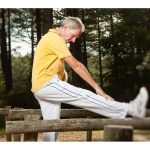
Extracurricular activities may have many benefits for young children, but researchers have discovered racial gaps in who takes part. Among a group of 401 kindergarten students in Ohio, white children were 2.6 times more likely to participate in the most common extracurricular sports than children of other races and ethnicities. The study found similar results for other after-school activities in this age group. “If racial-ethnic minority students and those from disadvantaged backgrounds don’t have access to extracurricular activities at a young age, they may miss opportunities that could help them succeed in school,” researcher Elise Allen said in an Ohio State University news release. She’s a graduate student in educational studies at the university. Other determining factors were family income and mothers’ education. The researchers found that 47% of children whose mothers had a high school equivalent or less education participated in athletics, while 96% of those whose mothers had a graduate or professional degree did. The study was part of a larger project examining children’s learning, achievement and social development in students in pre-k classrooms through third grade. The project is called Early Learning Ohio. While existing research on the benefits of extracurricular activities tends to focus on adolescents, “given the documented benefits for adolescents, we thought it was crucial to examine who is participating at earlier ages and what benefits they might receive,”… read on > read on >

























-300x200.jpg)







-300x169.jpg)
